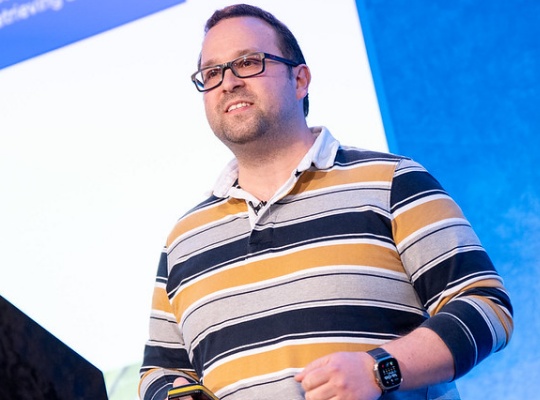Codetown
Codetown ::: a software developer's community
Java Versions
JDK Versions
The various JDK versions are:
- JDK Alpha and Beta (1995): Sun announced Java in September 23, 1995.
- JDK 1.0 (January 23, 1996): Originally called Oak (named after the oak tree outside James Gosling's office). Renamed to Java 1 in JDK 1.0.2.
- JDK 1.1 (February 19, 1997): Introduced AWT event model, inner class, JavaBean, JDBC, and RMI.
- J2SE 1.2 (JDK 1.2) (December 8, 1998): Re-branded as "Java 2" and renamed JDK to J2SE (Java 2 Standard Edition). Also released J2EE (Java 2 Enterprise Edition) and J2ME (Java 2 Micro Edition). Included JFC (Java Foundation Classes - Swing, Accessibility API, Java 2D, Pluggable Look and Feel and Drag and Drop). Introduced Collection Framework and JIT compiler.
- J2SE 1.3 (JDK 1.3) (May 8, 2000): Introduced Hotspot JVM.
- J2SE 1.4 (JDK 1.4) (February 6, 2002): Introduced assert, non-blocking IO (nio), logging API, image IO, Java webstart, regular expression support.
- J2SE 5.0 (JDK 1.5) (September 30, 2004): Officially called 5.0 instead of 1.5. Introduced generics, autoboxing/unboxing, annotation, enum, varargs, for-each loop, static import.
- Java SE 6 (JDK 1.6) (December 11, 2006): Renamed J2SE to Java SE (Java Standard Edition).
- Java SE 7 (JDK 1.7) (July 28, 2011): First version after Oracle purchased Sun (called Oracle JDK).
- Java SE 8 (JDK 1.8) (March 18, 2014): included support for Lambda expressions, default and static methods in interfaces, improved collection, and JavaScript runtime. Also integrated JavaFX graphics subsystem.
- Java SE 9 (JDK 9) (September 21, 2017): introduced modularization of the JDK (
module) under project Jigsaw, the Java Shell (jshell), and more. - Java SE 10 (18.3) (JDK 10) (March, 2018): introduced
varfor type inference local variable (similar to JavaScript). There will be 2 releases each year, in March and September, denoted asyy.m. - Java SE 11 (18.9 LTS) (JDK 11) (September, 2018): extended
varto lambda expression. Standardize HTTP client injava.net.http. Support TLS 1.3. Clean up the JDK and the installation package.
Notes
Welcome to Codetown!
 Codetown is a social network. It's got blogs, forums, groups, personal pages and more! You might think of Codetown as a funky camper van with lots of compartments for your stuff and a great multimedia system, too! Best of all, Codetown has room for all of your friends.
Codetown is a social network. It's got blogs, forums, groups, personal pages and more! You might think of Codetown as a funky camper van with lots of compartments for your stuff and a great multimedia system, too! Best of all, Codetown has room for all of your friends.
Created by Michael Levin Dec 18, 2008 at 6:56pm. Last updated by Michael Levin May 4, 2018.
Looking for Jobs or Staff?
Check out the Codetown Jobs group.
InfoQ Reading List
MySQL 9.6 Changes Foreign Key Constraints and Cascade Handling

MySQL is changing the way foreign key constraints and cascades are managed. Starting with MySQL 9.6, foreign key validation and cascade actions are handled by the SQL layer rather than the InnoDB storage engine. This will improve change tracking, replication accuracy, and data consistency, making MySQL more reliable for CDC pipelines, mixed-database environments, and analytics workloads.
By Renato LosioVercel Releases React Best Practices Skill with 40+ Performance Rules for AI Agents

Vercel has launched "react-best-practices," an open-source repository featuring 40+ performance optimization rules for React and Next.js apps. Tailored for AI coding agents yet valuable for developers, it categorizes rules based on impact, assisting in enhancing performance, bundle size, and architectural decisions.
By Daniel CurtisKubernetes Introduces Node Readiness Controller to Improve Pod Scheduling Reliability

The Kubernetes project recently announced a new core controller called the Node Readiness Controller, designed to enhance scheduling reliability and cluster health by making the API server’s view of node readiness more accurate.
By Craig RisiPresentation: Platforms for Secure API Connectivity With Architecture as Code

Jim Gough discusses the transition from accidental architect to API program leader, explaining how to manage the complexity of secure API connectivity. He shares the Common Architecture Language Model (CALM), a framework designed to bridge the developer-security gap. By leveraging architecture patterns, engineering leaders can move from six-month review cycles to two-hour automated deployments.
By Jim GoughMicrosoft Open Sources Evals for Agent Interop Starter Kit to Benchmark Enterprise AI Agents

Microsoft's Evals for Agent Interop is an open-source starter kit that enables developers to evaluate AI agents in realistic work scenarios. It features curated scenarios, datasets, and an evaluation harness to assess agent performance across tools like email and calendars.
By Edin Kapić
© 2026 Created by Michael Levin.
Powered by
![]()
You need to be a member of Codetown to add comments!
Join Codetown